Will Cooper's job is anything but ordinary
A look into the world of a private chef for an ultra high net worth family.
Will Cooper is a private chef and writer working for an ultra high net worth family on their organic farm, deep in the rural English countryside. He takes a seasonal approach to cooking using what’s available on the farm to make simple, vegetable-forward dishes. He also writes A Private Chef showcasing his two decades of work in kitchens in central London, his life working as a private chef, and adapting his recipes for a home cook. We chatted about his path to private cheffing, where he gets inspiration from, and what it’s like cooking for a very non-traditional client.
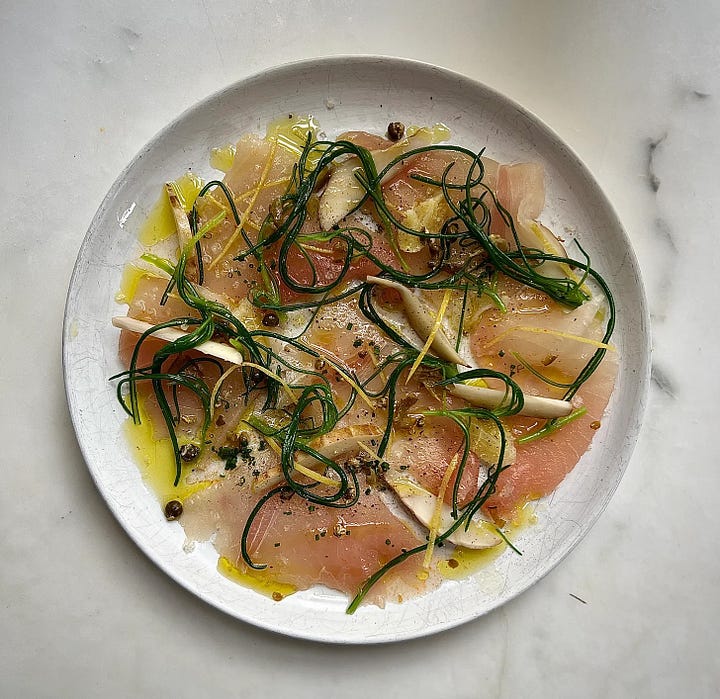
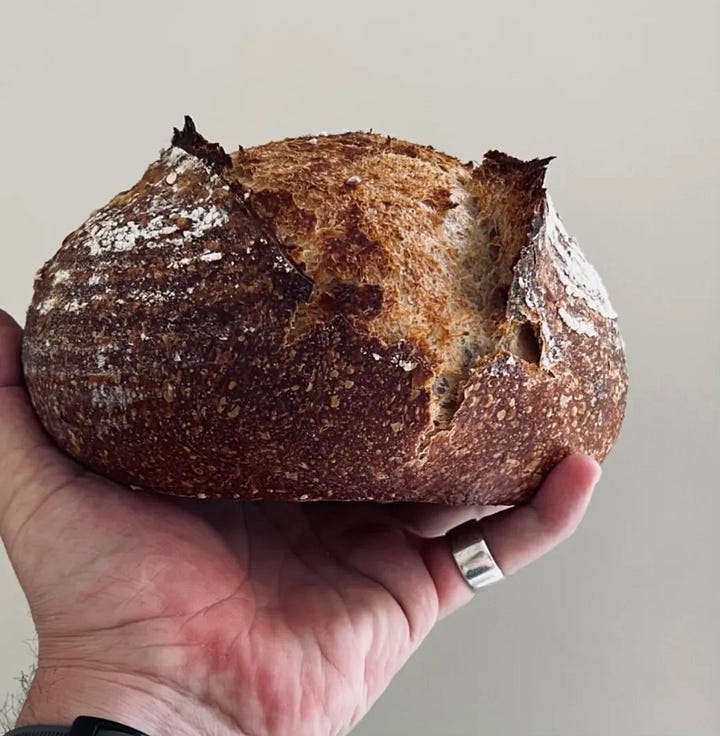
Brianna Plaza: Can you tell me about your background?
Will Cooper: So I've been a chef throughout my career. I did a university degree in history and philosophy many, many years ago, and it wasn't for me. Cooking was something I wanted to do since I was a kid and I've always loved food. I worked my way through London from simple restaurants to three Michelin star establishments.
I was a head chef of three different places in central London for well over a decade. During that time I was asked to look after a couple of clients from the international banking world, more just to do something different. And at the end of 2017, I basically had enough. I was working in a very toxic environment and it was time for me to walk away from it. So, I decided I was going to go back into private work, and that is where I am now. I look after an international family who relocated out of London and I've been with them for many years. We live in the middle of nowhere on a huge organic farm with lots of pets.
Brianna Plaza: How do you get started in private chefing, especially for a high net worth family?
Will Cooper: Generally it's word of mouth and introductions. My first role was through a colleague of mine who was working for a major celebrity who needed someone to help them out here and there. As soon as you've got an intro, if you're smart and any good, you can get by. It's about trust.
What you will find is that people are generally very normal. They just happen to be immensely wealthy. You do meet some characters, sure, and it's an interesting world. But you shouldn't be blinded by it. I think a lot of people go in with the wows, but it's actually quite relaxed. I'm left to my own devices with our forger and our gardener, and we grow everything that we do. I'm not asked really to do anything, I just create every day.
I bake my own bread. I make my own cheese. I cure charcuterie. We grow about 50% of what I use. We have an air hydroponic setup in one of the greenhouses, which does salad greens year round in towers. Our vegetable garden is enormous. We have seven huge raised beds, where we do a polyculture method of growing, and it's all organic. The rest of it I rely on London to send in boxes every day for things we can't grow.
Brianna Plaza: You mentioned a forager and gardener. How do you collaborate with them?
Will Cooper: Informally, we plan through the year what we're going to grow and when we're going to harvest it. I stick to the seasons. I do buy mangoes from Brazil because they are beautiful and there is not a reason not to use them. I'm not that sensitive with buying things like that because they're there to buy and they're beautiful, so why not celebrate them? But as far as the Northern European seasons go, I try to stick rigidly to that.
We keep bees and we harvest honey once a year. We have an orchard, which has about 100 trees of varieties of apples, pears, and plums. I'm making currently about 200 liters of cider vinegar. I'll use locally shot meats and I use as much wild fish as I can find.
There's a lot of land here, so we walk the land. We take mushrooms from the hedges. We’ve got truffles that grow wild here. We also planted oak and birch trees and their roots were treated with truffle spores. The trees will create a woodland for future generations, but hopefully in 10 years the truffles will start to produce.
We try to do things that are interesting, traditional, and real. In my previous existence as a chef, I've never really been into jellies and foams. That's not me. I think it's very easy to hide behind trickery like that. I think it's less easy to hide behind two or three ingredients on a plate. Using exceptionally high quality ingredients and doing little to them is what works for me. You have to be creative, you have to learn.
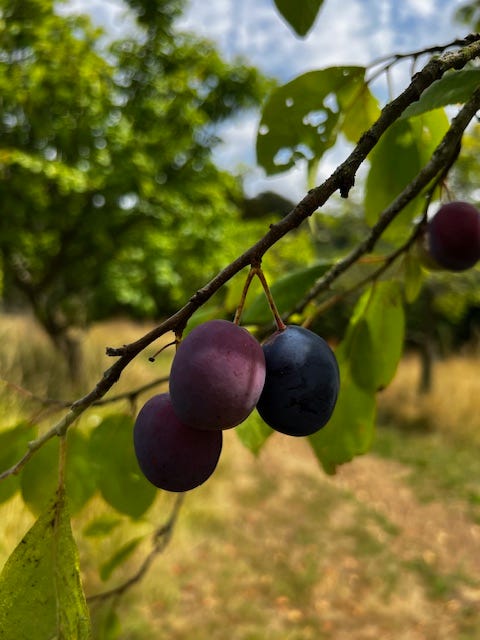

Brianna Plaza: Where do you get inspiration from?
Will Cooper: I'm very health driven in a way. We don't use a lot of meat, I use a lot of fish, and I use a lot of vegetables. The adults like a fermented things so we pickle everything we can.
As a chef, I scroll Instagram and I go back to my old books. I try to refresh things I've seen and done, and try not to repeat myself. My style of food is understated with lots of flavor and plated nicely. It's about the beauty of what I've got and making that ingredient shine for itself rather than trying to change the wheel.
Not every day is the same. I bake a lot of bread. There are kids in the house, so there's always biscuits. There's always cakes. There's 11 dogs, so I feed the dogs. There's birthday cakes for dogs. You have to be everything for everybody in a household.
Brianna Plaza: How do you think about menu design when you're feeding a family and their guests for three meals a day plus snacks every single day of the year?
Will Cooper: I think where people perhaps misunderstand this world is that they think everyone eats the grandest breakfast, the grandest lunch, and the grandest dinner every day. And there are some days like that, but not every day.
I'll start in the morning with fruit. Lunchtime is usually fish, salads, and vegetables. The afternoons, I'll make cakes. During the day, I make my own sourdoughs, prepare breads for the next day. Then there's kids dinner and an adult dinner, and sometimes they have guests.
No one eats caviar every day. Breakfast is breakfast, kids are kids. Lunch depends on what's in season and what we bring up from the garden. I work closely with Covent Garden, a vegetable market in London to get produce sent out like the impeccable white peaches from the south of France or broadbeans from Italy.
It's about challenging myself not to repeat myself. There are always things I will do again, but maybe I update it. There are favorite things like artichokes, but someone who loves artichokes isn't going to eat the same dish day in and day out, so you have to change it around.
We have this beautiful outdoor kitchen, wood-burning ovens, and smokers. We have three kitchens in this house, so if I am going to roast a chicken, I have three different places to go and cook.
It’s about challenging myself because otherwise I get stuck. I mean anybody can cook. But I think what's interesting with that is I reached a point in my life where I'm older, so what else do I need to learn? I started to learn to create ingredients. I wanted to learn to make charcuterie. I wanted to learn to make cheese. We smoke our own fish. I make salami. I make cuts of ham. I make my own bacon. I'm going to start using the milk from some of our goats to make some goats cheeses.
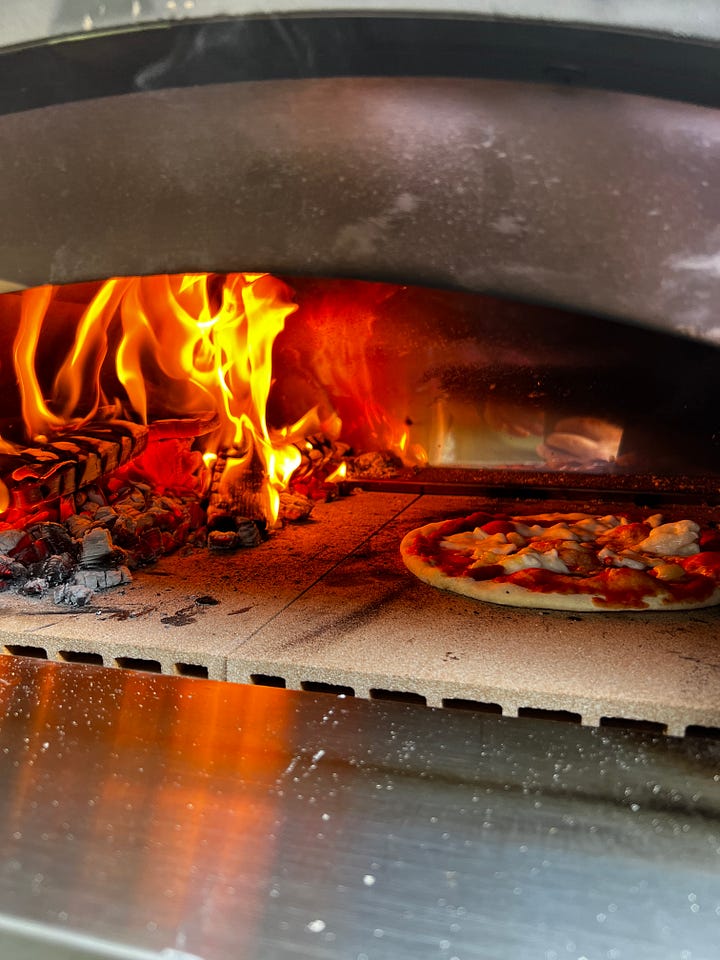
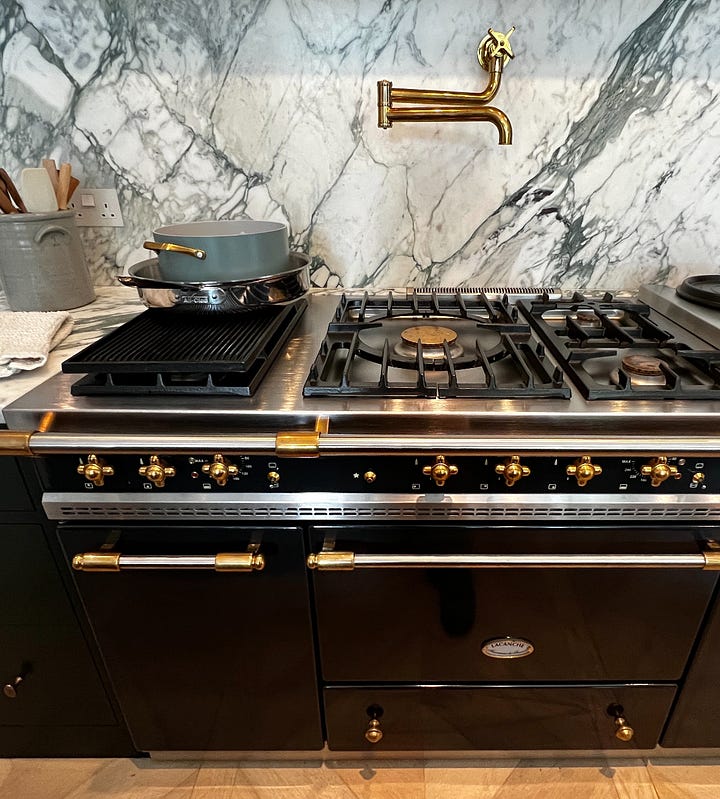
Brianna Plaza: Does the family ever want something super simple?
Will Cooper: Yes, and that's cool by me. You have to be flexible. If my client turns to me and says, "Can you just make me a bowl of rice for dinner?" I'll make a bowl of rice for dinner. If you want a bowl of rice and a piece of steam fish, and some soy sauce, that's what you'll have.
If I serve something like lasagna, I will put it out with a big green salad. I’ve probably made bread. But I will know that the lettuce leaves have come from the garden. The ingredients will be the best I can find. The salt is perhaps a salt that I've made and flavored myself. And the lasagna will be something I really spent the day making. So if my client wants that, that's what I make.
If you get too precious about it, then I think that you're misunderstanding what your client's needs. They employ someone to look after them with their food, that's what you do.
Brianna Plaza: Do you ever miss being a restaurant chef?
Will Cooper: I've been there, I've seen it. London has been pretty toxic for a long time, and the industry has changed. I walked away from it and I was happy to walk away from it, because I think with burnout, and the lifestyle, and the hours, the way the industry was, it came time to look after my own sanity.
I was asked if I wanted to go and work for somebody very, very, very prestigious. And I turned it down because I didn't want to have a heart attack. I knew that if I did that, it wouldn't be the best thing for me. I like to be the best version of myself rather than pushing myself through the mill for no reason. To work in this part of the industry is something different for me. Would I open my own place? Never say never. But the way the restaurant industry goes, it's so fickle and it can be an awful drain on finances.







Love will, loved hearing more of his story. "I like to be the best version of myself rather than pushing myself through the mill for no reason" WORD x
What a great interview! Love Will’s perspective and work.